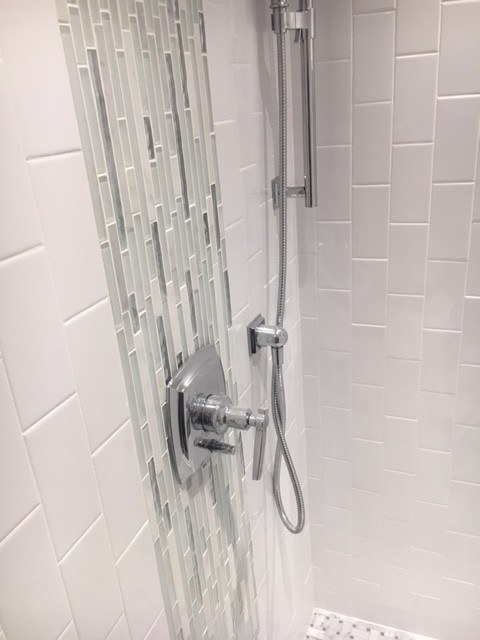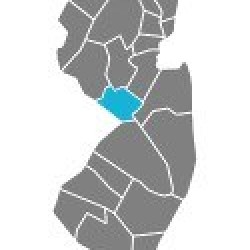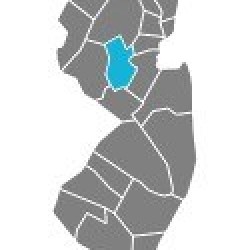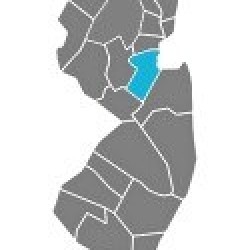Shower Installation & Repair
Maintenance & Repairs
Maintaining your shower as a homeowner can be daunting. With concerns with clogs, leaky fixtures, water pressure, and temperature control our professional, skilled plumbers are just a phone call a day. With 24 hour emergency service, we can get your equipment functioning as quickly as possible.
We're Just a Phone Call Away!
908-281-7101

Replacements & Installations
With Decades of Experience in Plumbing Technology, We Have the Expert Advice You Need to Select the Shower Equipment Products for Your Home. We recommend the most dependable and reliable brands. When your Shower Equipment needs to be replaced, we do the job right the first time.
24 Hour Emergency Services
Jersey Plumbing Service is dedicated to your comfort and daily necessities. Our experienced technicians continue to train and educate themselves on the best and newest technologies in plumbing.
Proudly Serving the Following Counties in New Jersey:

Union

Hunterdon

Mercer

Somerset

Essex

Middlesex

Morris
Shower Repair
Our plumbers can fix a wide range of problems with bathtubs and showers including slow or clogged drains, leaky fixtures, insufficient water pressure, or temperature control.
Slow or Clogged Shower Drains
A slow or clogged drain is never attractive when trying to get clean. Shower clogs are extremely common, with shampoos, soaps, hair and dirt easiy congealing into an impassable mess. In more extreme cases, your slow moving drain could be the result of a clogged sewer line. You will often notice this in the lowest levels of your home first.
Unpleasant odors originating from your drain are a sign of a clog. Even if the water isn't collecting at the bottom of your tub, it may be standing in the pipes, which could lead to leaks or burst pipes, and become attractive to a wide range of pests such as ants, cockroaches, termite and rodents. Cavities in the shower grout may also allow water to sneak into the walls, causing serious water and mold damage.
Some quick DIY's for the handy homeowner:
Boiling water can be poured down your shower drain. The temperature of the water helps to break up most of the soap scum and dirt build-up so it can be properly washed away.
A Plunger can be used to release hair blockages. Line the seal of the plunger with petroleum jelly to create a better air suction. This makes the plunger more effective. This will not stop hair build-up, but the best thing you can do to stop hair blockages is imply to remove hair caught in the drain cover after each shower.
Baking soda and vinegar is a natural way to dissolve hair clogs. Pouring a cup of baking soda down the clogged drain first then, after a few minutes, add a cup of vinegar. After a few hours of dissolving, rinse out the drain with boiling water.
While regular maintenance helps prevent blockages to an extent, professional drain cleaning keeps your drains running properly. If your shower drain keeps clogging, it may be a sign of a more serious blockage, possible in your main sewer line. The sooner these problems are addressed, the better. Delaying repairs can cost thousands.
Leaky Fixtures
A leaky faucet or shower head goes beyond an annoying drip, and can waste hundreds of gallons of water every week. Hot water leaks drain energy as well, causing the home's water heater to constantly cycle. In extreme cases, we've heard of electric bills tripling over these kinds of leaks.
If your shower valve is leaking inside the wall it could lead to to rot, mold and structural problems. If you suspect there is a leak inside your wall, you could save thousands of dollars in repairs by addresssing the problem quickly.
Often, an inner seal that is worn, or shower parts have become corroded or clogged with hard water deposits are the reason for a leaky shower faucet or shower head drip. With time and use, the rubber O-rings and gaskets that seal connections between moving metal parts wear down. When this happens, water squirts or drips out.
If a shower faucet keeps leaking after turning it off, a natural instinct is to crank the handle closed as hard as you can. Unfortunately, over-tightening may damage the valve. Fixing a leaky shower faucet or shower head is best left to a professional. We have the knowledge to fix the problem without damaging your equipment further.
Water Pressure
Water pressure is the amount of force from the water main into your home and is measured in pounds per square inch (PSI). Typically the normal water pressure is between 30 and 80 PSI. Functional flow is the volume of water flowing through your pipes and arriving at individual fixtures. Poor functional flow may be due to buildups in the pipes or poor plumbing.
You do not want water pressure that is too high. 80 PSI is what piping systems are designed to have. Exceeded pressure can cause problems. Even though high pressure rarely causes pipes to burst, it will stress the weak links in the piping system such as rubber hoses and gaskets, eventually leading to leaks. Our professionals can correct high water pressure by installing a pressure reducing valve. This device reduces water pressure and aims for pressure that is 60-70 PSI.
If your water pressure is low, you'll need to determine if your house is on a public water supply or a private well system. Most public systems are required to deliver a minimum of 30 PSI to your house, so inadequate pressure on a public water system is rare. If your utility company cannot improve your pressure, our plumbers can install a pressure tank and a pump. This gives the supply a pressurized boost. On a private well, poor pressure could indicate a problem with the captive storage tank and/or the pump.
Poor functional flow can also be due to galvanized steel pipes. Galvanized pipes were commonly installed until the late 1960's and the early 1970's. The galvanized coating was designed to prevent corrosion of the steel pipes that were installed into houses. When this wears off, the pipes can become clogged up with rust. The only way to fix this problem is to replace the pipes.
Poor flow can also result from amateur pipe replacements. For functional flow, it's essential to have properly sized and possitioned pipes.
Flow may also be affected by a partially closed angle stop, restricted aerators, water main shutoffs stuck partially closed or restricted, or kinked/restricted supply connector hoses.
Temperature Control
The temperature of your water is not always about which handle is turned to what degree - or necessarily about the temperature of the water coming out of your water heater. If your mixing valve is damaged, water could come out of your faucet at much more extreme temperatures than you would normally bargain for. No matter the cause of your temperature problems, we can assess the problem and get you back to comfort.
Water is stored in your home at scalding temperatures to prevent bacterial growth. Without this valve, this water might flow from your shower head, bath faucet, or sink and cause you injury. There is a central thermostatic mixing valve that works automatically. It's quipped with a thermostat so that it will close a plunger and stop the supply of hot water if the cold water pressure experiences a sudden drop. This will prevent extremely hot water when you turn on a faucet handle as long as it is working correctly.
Central mixing valves that can be installed in kitchen and bathrooms operate without the user having to do anything. However, these do not guarantee against very hot water that a central mixing valve does. Homes should still have a thermostatic mixing valve installed to prevent any accidents.
You need to take care of your plumbing because a mixing valve is important for protecting you and your family. Whether its showering, cleaning dishes, or washing your hands. New Jersey Plumbing offers exceptional maintenance plans and annual visits from one of our experts will alleviate your worries.